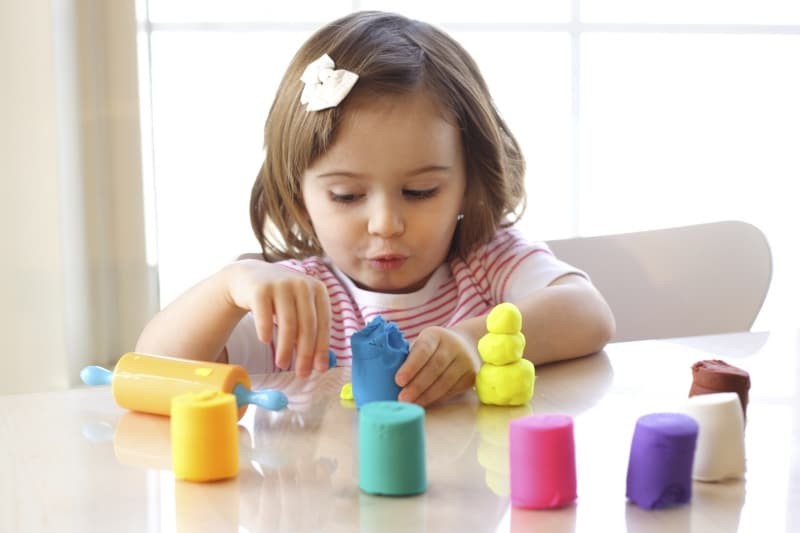
What is play therapy? How does it differ from other forms of therapy? Who can benefit from it? Although most parents have heard the term, it is usually only those whose children have experienced play therapy who understand it best. While often thought of as psychotherapy for children with severe problems, an understanding of the principles of play therapy can help any parent or caregiver communicate better with children.
What is Play Therapy?
Play therapy is a form of therapy for children that is practised by any licensed mental health professional, such as counsellors, psychologists, social workers and recreational therapists. It aims to help a child get through their emotional issues, support their cognitive development, and address other aspects of their life that may have been impacted by traumatic experiences or mental health issues. Engaging a child in recreational activities is also a therapeutic approach to language development and learning and mastering essential life skills, such as the following:
- Motor skills
- Social skills
- Communication skills
There are two basic types of play therapy:
- In structured play therapy, the therapist takes an active or directive role in the process.
- In non-directive (or child-directive) play therapy, the therapist takes a less active role, allowing the child to take the lead within set boundaries.
In practice, qualified play therapists both observe and participate in the therapeutic process. As Garry Landreth, founder of the Center for Play Therapy at the University of North Texas in the United States, has written: "The play therapist is never an observer but is always an emotional and verbal participant."
In an initial session, the therapist often starts by giving the child a range of carefully selected toys to play with. Typically, these types of toys will include:
- Clay, crayons and other art supplies
- Building blocks and/or erector sets for creating structures
- Toy kitchen appliances
- Toy soldiers or a baby doll
- Baby bottles, rattles and other items associated with infancy
- Toy guns and/or rubber knives
- A range of stuffed animals
- Musical instruments
An experienced therapist may also include sand tray therapy in a child's therapeutic activity. In a study conducted by a team of psychologists in South Korea (Kwak et al., 2020), this fun activity has been shown to have a therapeutic relationship with the development of self-esteem in elementary school students. Creating their own little world in sand allows a child to mimic the one they live in, thus giving them the opportunity to see and recognize their challenges and develop emotional resilience.
In a child-centred play therapy, the child will be left free to select and play with whatever toys he or she likes. The only limits set will be a time limit (usually no longer than half an hour) and limits to excessive behaviour.
During the initial session, the child therapist remains largely a passive observer, engaging the child's attention only to establish rapport. The most important thing is to establish an atmosphere of trust and care.
As play therapy continues, the therapist uses a variety of techniques to draw the child out and get them to communicate honestly and openly. A frequently used non-directive technique is called the "reflective" technique, in which the therapist asks the child's opinion about something or uses an open-ended question such as, "I wonder why that person is frowning?", that the child is free to answer or not.
Who Can Benefit from Play Therapy?
Play therapy is recommended for children facing a number of crises that may be otherwise too difficult for them to face on their own, such as:
- Divorce or separation
- Violence
- Parental neglect or other family issues
- Abuse
- Death and grieving
- Natural disasters
In addition, play therapy is often recommended for children who show symptoms of a variety of neurological, physical or psychological issues. Basically, if a child needs help, play therapy can often be the best help that can be offered.
Psychologists stress that untrained caregivers should not attempt to act as play therapists. Prospective play therapists are required to obtain specific skills in order to assess, diagnose and treat psychological disorders effectively. However, play therapists often recommend that caregivers set up an initial play therapy session for their children, observe them at play and respond to them when asked, but not take the initiative or attempt to direct their activities. This allows you to learn a great deal about yourself and your child at the same time. It is also a great way to spend "quality time" with a child undistracted from other things you may habitually do when they are playing alone.
If you're looking for a therapist with an extensive clinical experience to create a play therapy program specifically tailored for your child's needs, you may check out the Natural Therapy Pages' comprehensive list of qualified play therapists or children's health specialists in Australia.
Originally published on Jun 25, 2012








